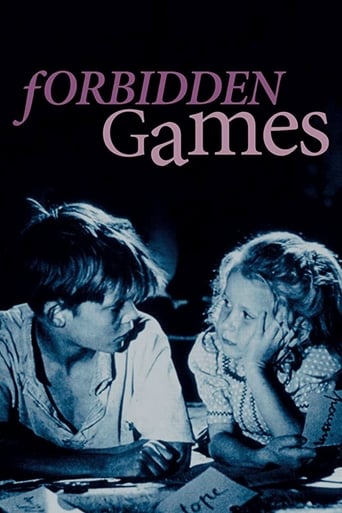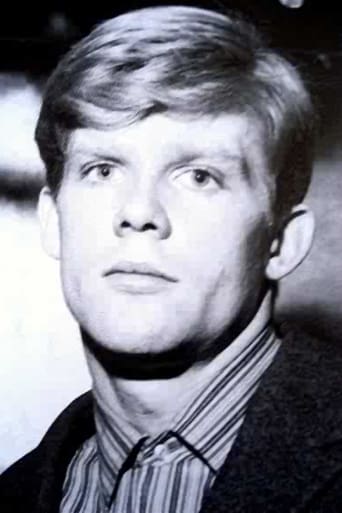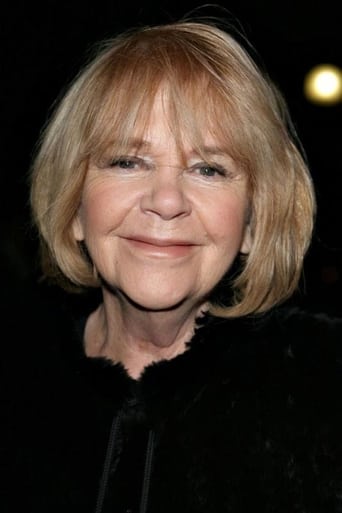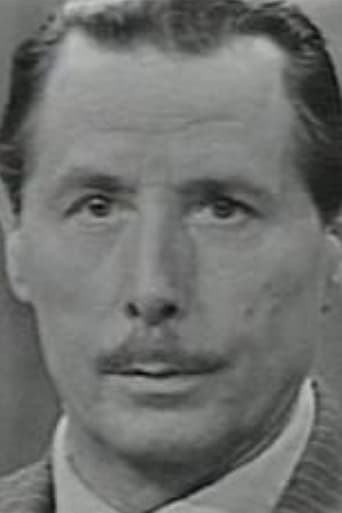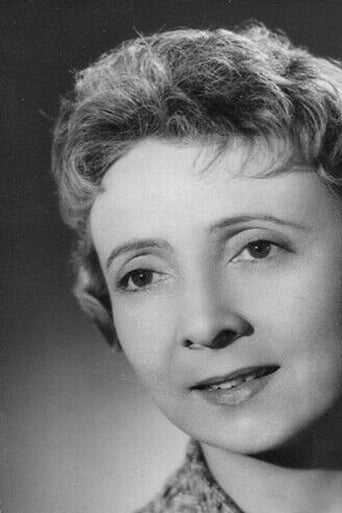Laikals
The greatest movie ever made..!
Ceticultsot
Beautiful, moving film.
SparkMore
n my opinion it was a great movie with some interesting elements, even though having some plot holes and the ending probably was just too messy and crammed together, but still fun to watch and not your casual movie that is similar to all other ones.
Seraherrera
The movie is wonderful and true, an act of love in all its contradictions and complexity
Jackson Booth-Millard
From director René Clément, this French film was featured in the book 1001 Movies You Must See Before You Die, and like many of the other films in the book I was looking forward to seeing if I would agree with the high rating by the critics, five out of five stars, and the book recommendation of course. Basically, set in 1940, during the time of the Battle of France in the Second World War, five year old Paulette (Brigitte Fossey) suffers the death of her parents and her pet dog when they are killed on a bridge in a German air attack, along with other fleeing Parisians, and escaping the trauma she meets ten year old Michel Dolle (Georges Poujouly) who is the youngest of a peasant family, and they allow her to be taken in having become an orphan. Surrounded by death, destruction and devastation the two friends attempt to cope with it building a small secret cemetery in the ruins of an abandoned barn, this is where they bury her dead dog and other animals, using crosses that they steal from the graveyard to mark their graves, they even steal the cross from the grave of Michel's brother. The neighbour is suspected by Michel's Father (Lucien Hubert) as the person who stole the cross from his dead son's grave, but he does find out that it was Michel that took it, and meanwhile the French police come to take Paulette from the Dolle family. Michel is upset and angry at the thought of his friend being taken away, and he tells his father that he must not let her go otherwise he will not tell him where the stolen crosses are hidden, and after his father does not keep his promise to help her he throws all the crosses in the flowing river. Paulette is taken to a Red Cross camp, but before the end of the film she is seen escaping and running into a crowd, stopping only in the train station to cry for the loss of her friend Michel and the death of her mother. Also starring Amédée as Francis Gouard, Laurence Badie as Berthe Dolle, Suzanne Courtal as Madame Dolle, Jacques Marin as Georges Dolle and André Wasley as Gouard, the Father. The performances are all good, especially by the young stars, the story about the distractions from war and Nazi occupation with childhood innocence is interesting, there are moving and poignant moments, and it does not need to delve in sentimentality or anything predictable, it is a great drama. Very good!
Armand
War. A peasant family. A girl. An animals cemetery. And mixture between innocence and bereavement. A movie as a white paper. Every word is a seed- sign. German plains and secret games. Michel and Paulette. Love as indistinct smoke of autumn and looks of children like huge mirrors. Film about forms of cruelty , it is not pledge against war but sketch for small hours of fundamental peace. Picture of a world , secret, fragile, strong and its borders. Ladder between ages, Jeux interdits is invitation to large view . Crashes, meetings, end of graves and courage to build an unbearable circle. Memories and steps. In the front of dusty words. In the skin of impressive music.
ElMaruecan82
The wounds of the war weren't hailed yet that René Clement decided, in 1952, to revisit its traumatic experience and one of France's darkest periods, which started on the gloomy and disastrous year of 1940. It took a tremendous courage to make a film on such a painful subject, but "Forbidden Games" explores the War with an originality that would put it among the most poignant and universal movies ever made: children's point of view. And the way, these children perceive such terrible things like war and death is the humanistic and inspirational message, the film delivers to humanity."Forbidden Games" is an extraordinary immersion into childhood, our own childhood. And while watching the film. I was asking myself many questions such as: 'What if I lived during War?' 'What if I had encountered death as a child?' etc. The movie speaks for all these innocent children who had to live during troubled days, where death was as casual as life. Indeed, René Clement decided to make this film after having seen a documentary where a little Chinese girl was standing alone in field after the destruction of a village. This haunting image convinced him to make a tribute for the precocious bravery that inhabited those little hearts.So, the movie follows the small steps of Paulette, played by a five-year old Brigitte Fossey in a moving child performance that reminded me of Jackie Coogan in Chaplin's "Kid". She's like a little angel lost in a world of barbarity and cruelty. Her innocence indirectly caused her parents' death: by trying to protect her dog, she got exposed to the Nazi attacks and get her parents taking the bullets for her, War's absurdity is directly highlighted by the death of the dog that made the parents' sacrifice even more pointless. But this death will be the pivotal point that will put Paulette in Michel's path. Michel, a twelve-year old kid played by George Poujouly, who left this world too soon, in 2000.The new little orphan, Paulette, is accepted within Michel's family, the Dolles. The rural setting of the film could have made us forget about the war if it wasn't for death's omnipresence. Death's shadow haunts the Dolles' house with an implacable imminence after one of the father's sons, George, a jovial fellow, is stamped by a frightened horse during the same attacks that killed Paulette's parents. Ironically, it's the event that would lead Michel to meet Paulette. Their encounter was provoked by two fatal accidents, as if death was already the protagonist that would build their complicity. I don't mean to make this movie morbid, but just to assess that this is a mature film that deals with the innocence of childhood in a powerful way precisely because the theme of the movie is particularly dark.But this is not a sinister movie in its general mood, it's even punctuated by some comedic moments involving the rivalry with the neighbors, the Gouards and the father's temper. The movie's more general tone is serious, melancholic and profoundly nostalgic. This nostalgia feeling is perfectly embodied by the legendary music of Narcisco Yepes, one of the most beautiful scores ever. Or maybe romantic, considering the many love undertones between Paulette and Michel, his guardian angel with an angel face. They love each other because together, they manage to construct a world through war, a world that started from the idea of burying a grave for Paulette's dead dog.Paulette experienced death from the bombings that killed her parents; she almost learned to perceive death by an instinctive touching of the cheek. It's like she grabbed the concept of life ending, and if she took her dog with her and didn't seem to care for his parents, it's probably because of the dog's spasmodic movements that fooled her as an illusion of life. Besides, the idea of burying dead creatures satisfies Paulette, as if it was a way to exorcise all the fears that War could inspire. Death is not a danger anymore, almost a privilege. And the game that Paulette and Michel invent consist on burying dead animals and constructing a cemetery entirely dedicated to them. They try to domesticate the frightening specter of death, and make it more convenient for children's minds. We all simulated the adult world through our childhood games, playing the teacher, Dad and Mom or the doctor, so naturally, children during the War, played with death, and religion as if War was the likeliest time to underline the futility of belief, because war itself, is like the abdication of any humanistic or universal belief, a very mature film, indeed.Brigitte Fossey herself, said in an interview that it was a film meant for adults. Because it shows how children could also be cruel by inflicting death to more fragile creatures just to imitate the adult world, like when Michel kills the cock-roach suddenly provoking Paulette's crying. As much as she was used to death, she couldn't stand the act of killing, which reassures us about her innocence's preservation. Death can be playful, but killing is another matter. Life is still sacred for this poor little soul. And this is why I disagree with Fossey: yes, it's a film for adults, or older children, but again, it's also an inspirational movie about the power of imagination as the children's only weapon to face death and War. Children are still children, even during War … And this is a movie that helps us to rediscover the magic of our own childhoods, our first little romances, our little games, all these things that start with 'little', and to let our hearts beat of joy and our tears running on our faces, driven by this beautiful music, the purest expression of a lyric innocence, victorious over the brutality and insanity of war
aflynn
I first saw this small movie in 1976 at the now long gone Inner Circle Theater in Washington DC, as part of a double feature with "The Grand Illusion." Despite the emotional drain of seeing these movies in one sitting, I thought "Forbidden Games" was one of the best I had ever seen. I rediscovered it in the Criterion Collection 34 years later, and still find it a wonderfully engaging movie. Personally, I have no problem with the ending, which I do not find at all confusing. The Criterion Collection DVD includes interviews with director Rene Clement from 1962, with child star Brigitte Fossey in 2000, and with the director and actress together in 1967. This DVD also includes the alternate opening and ending, which fortunately were not used, as they would have neutered the impact of the story.
